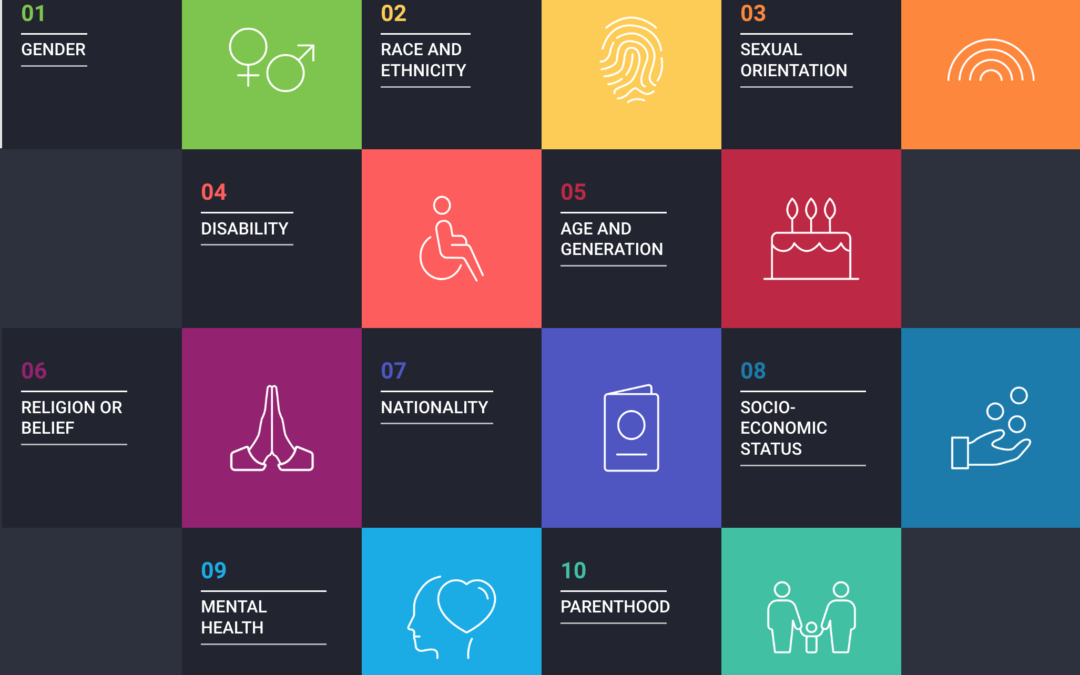This spring, the McKenzie-Delis Foundation published a comprehensive report on diversity and inclusion in U.S. workplaces. Critically, the report goes beyond the most traditional metrics of diversity, equity, inclusion and belonging to explore aspects of “both visible and invisible diversity” ranging from gender diversity to religion.
“Companies with more diverse executive teams are now more likely than ever to outperform their less diverse peers on profitability, by up to 35% in some cases,” says Leila McKenzie-Delis, CEO of Dial Global and founder of the McKenzie-Delis Foundation. “If a business was told they could increase their profitability by even a fraction of that, for any other reason other than diversity, they would do it. Organizations are literally throwing away money by ignoring the problem, and not encompassing D&I as part of their business strategy.”
The project creators say they aim for the report to become an annual tool to help employers assess their position on each of the 10 facets of diversity analyzed in the report, and measure their progress over time.
“When it comes to encouraging our employees to bring their full selves to work, we can no longer stand on the sidelines, especially in this polarized world we live in now,” says Tami Erwin, co-chair of the McKenzie-Delis Review and CEO of Verizon Business. “Instead, we must create a culture where we are open, welcoming and empathetic to one another.”
Here’s a quick look at some of the key findings in of the report:
Gender
- 85% of U.S. companies specify gender diversity in succession planning.
- Yet only 8% have gender equity on their executive leadership team.
Ethnicity
- 89% of participating employers have at least one member of an ethnic minority on their leadership team
- 92% have outreach programs to recruit talent from ethnic minority backgrounds
Sexual orientation
- Half of participating U.S. companies have LGBTQ+ representation on their leadership team
- Because the data is not often tracked, 41% of companies surveyed didn’t know if they have LGBTQ+ representation on their leadership committee.
- 70% have approved an LGBTQ+ strategy in the past 12 months
Disability
- Half of participating U.S. companies are actively looking to increase the number of staff with disabilities
- Almost all offer workplace adjustments
Age and Generation
- Nine out of ten board members were 50 years or older
- 70% of U.S. participating U.S. employers have measures in place to reduce age bias in recruitment
- 14% of companies offer training geared toward older workers
Religion
- 97% of companies allow employees to take time off religious holidays
- 70% provide a dedicated prayer space
Nationality
- 95% say they promote the benefits of a culturally diverse workforce
- 73% offer inclusivity training
- 52% of companies collect data on what countries their employees come from
Socio-economic status
- 70% of U.S. companies in the survey have outreach programs targeting candidates from lower socioeconomic backgrounds or lower performing schools, and 54% say they use contextual recruitment practices to support these applicants
- Because just 11% collect and monitor data on the socio-economic background of their workforce, it’s difficult to see the full scope of the issue
Mental health
- 76% of participating companies say they have a mental health strategy in place
- 62% offer mental health training
Parenthood
- 97% of employers surveyed offer an uplift statutory maternity pay. 86% do so for paternity pay and 70% for adoption pay.
- 46% of companies train line managers on how to support expecting or new parents and
- 49% have formal support programs for parents returning from parental leave.
Intrigued? Click below to take a deeper dive into the report’s insights and findings.

